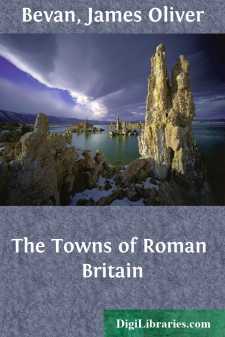Categories
- Antiques & Collectibles 13
- Architecture 36
- Art 48
- Bibles 22
- Biography & Autobiography 813
- Body, Mind & Spirit 142
- Business & Economics 28
- Children's Books 15
- Children's Fiction 12
- Computers 4
- Cooking 94
- Crafts & Hobbies 4
- Drama 346
- Education 46
- Family & Relationships 57
- Fiction 11828
- Games 19
- Gardening 17
- Health & Fitness 34
- History 1377
- House & Home 1
- Humor 147
- Juvenile Fiction 1873
- Juvenile Nonfiction 202
- Language Arts & Disciplines 88
- Law 16
- Literary Collections 686
- Literary Criticism 179
- Mathematics 13
- Medical 41
- Music 40
- Nature 179
- Non-Classifiable 1768
- Performing Arts 7
- Periodicals 1453
- Philosophy 64
- Photography 2
- Poetry 896
- Political Science 203
- Psychology 42
- Reference 154
- Religion 513
- Science 126
- Self-Help 84
- Social Science 81
- Sports & Recreation 34
- Study Aids 3
- Technology & Engineering 59
- Transportation 23
- Travel 463
- True Crime 29
The Towns of Roman Britain
Description:
Excerpt
HISTORICAL SKETCH.
The earliest notice of Britain is in Herodotus ( 480-408); but he mentions the Tin Islands (Scilly Islands and Cornwall), only to confess his ignorance about them. More important is a passage in Aristotle ( 384-322), who (writing a century later) is the earliest author who mentions the British Isles by name, as he does in the following passage: "Beyond the Pillars of Hercules (the Strait of Gibraltar) the ocean flows round the earth, and in it are two very large islands (Nesoi Britannikoi), called in British Albion and Ierne, lying beyond the Keltoi." The application of the name Britannia to denote the larger island, is due to Julius Cæsar ( 100-44), who is the first Roman writer to mention Britain. The name itself may be derived from Welsh, brith, mottled, tattooed, or from brithyn, cloth, cloth-clad, as opposed to the skin-clad Celts.
The history of Britain would be a very long one if we only knew it. It is clear that a considerable interchange of commerce was carried on between the south-eastern parts of the island and Gaul, and that even the remoter regions of the Mediterranean were largely dependent upon Britain for their supplies of tin from the Cornish mines, of lead from Somerset, and of iron from Northumberland and the Forest of Dean.
Politically, Britain consisted of a number of independent bodies, united in a federation of the loosest kind, in which the lead was taken by that tribe which happened at the time to be the most powerful or to have the bravest or most astute leader.
About 56 Caius Volusenus was sent to this country by Julius Cæsar to examine the coast preparatory to an invasion. The step was threatened, because it was alleged that the Britons had aided and abetted some of the Gaulish tribes in their resistance to the Roman domination. On August 26th, 55, Cæsar himself set sail from Portus Itius, near Boulogne, with two legions, and effected a landing, presumably near Deal. A good deal of discussion has taken place relative to this point, and much has been said as to the action of the winds and tides in determining his landing place. Probably he would have made a feint at Dover and one or two other places, under cover of which the main body would land at a spot weakly defended. At all events, the resistance offered by the British was soon overcome, easy terms being imposed on their submission. Soon after, Cæsar left, but early in the following summer he again invaded these shores with five legions and two thousand cavalry. He landed in the same neighbourhood as before, and advanced 12 miles inland to the river Stour before meeting with the islanders. Ultimately he decisively defeated Cassivelaunus, the leader, either near London or his capital, Verulamium. The conqueror departed at the fall of the year, without leaving behind any garrison, but, at the same time, taking away hostages to ensure the carrying out of the terms imposed.
Then ensues a period during which direct Roman influence of a dominant or military character fell into abeyance, so that one is required to take up the tale at a much later period, viz., the accession of Claudius, in ...


